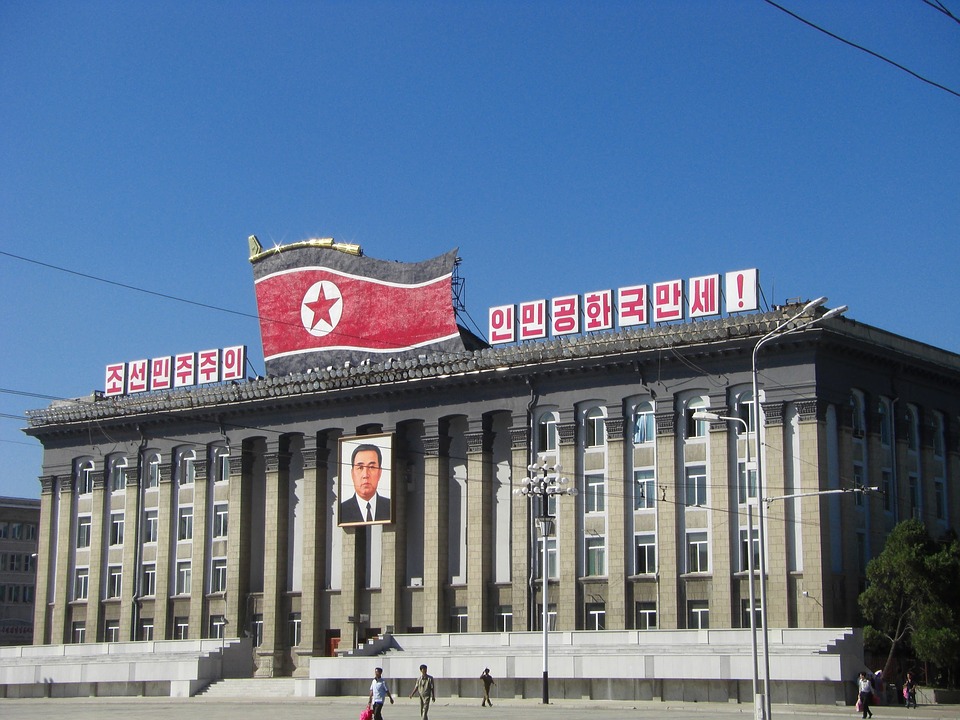North Korea is currently dealing with an increasing number of COVID-19 cases in the nation. Trade data that was released revealed that Pyongyang suddenly stopped its import of COVID-19 containment products from China.
Reuters reports that trade data released by Beijing revealed that North Korea abruptly stopped importing COVID-19 containment products from China, following previous data that revealed North Korea purchased face masks and ventilators from Beijing months back.
Chinese customs released the data Monday, revealing that North Korea did not purchase face masks, thermometers, rubber gloves, ventilators, or vaccines in May. This is compared to the imports of over 10.6 million face masks, almost 95,000 thermometers, and 1,000 non-invasive ventilators from January to April.
This comes amidst declining cases of fever in North Korea, according to the report by the state news outlet KCNA since the isolated nation first acknowledged in May that it was tackling a COVID-19 outbreak. However, Pyongyang has yet to reveal how many of those fever cases tested positive for coronavirus.
The Chinese foreign ministry confirmed back in April that it has suspended cross-border freight train services with North Korea after consultations due to the COVID-19 infections in the border city of Dandong.
Aside from tackling the COVID-19 pandemic, North Korea is also dealing with an outbreak of an intestinal disease, according to state media over the weekend. Around 800 families in North Korea are reported to be suffering from what Pyongyang has described as an “acute enteric epidemic.” The families are receiving treatment from the South Hwanghae province.
In response to the epidemic, Pyongyang has dispatched medical teams and epidemiological investigators to the province where the intestinal disease was found.
South Korean officials say the disease may be cholera or typhoid.
KCNA reported prevention methods, including quarantines, “intensive screening for all residents,” and special treatment and monitoring of those at risk, such as children and the elderly.
KCNA said a “rapid diagnosis and treatment team” is coordinating with local health officials and that measures are being taken to make sure farming is not disrupted in the area.
The state media outlet also reported that disinfection work is also being carried out in the area, including sewage and other waste, to keep household and drinking water safe.



 Trump Backs Nexstar–Tegna Merger Amid Shifting U.S. Media Landscape
Trump Backs Nexstar–Tegna Merger Amid Shifting U.S. Media Landscape  Trump Signs Executive Order Threatening 25% Tariffs on Countries Trading With Iran
Trump Signs Executive Order Threatening 25% Tariffs on Countries Trading With Iran  Trump’s Inflation Claims Clash With Voters’ Cost-of-Living Reality
Trump’s Inflation Claims Clash With Voters’ Cost-of-Living Reality  Trump Administration Appeals Court Order to Release Hudson Tunnel Project Funding
Trump Administration Appeals Court Order to Release Hudson Tunnel Project Funding  India–U.S. Interim Trade Pact Cuts Auto Tariffs but Leaves Tesla Out
India–U.S. Interim Trade Pact Cuts Auto Tariffs but Leaves Tesla Out  Federal Judge Restores Funding for Gateway Rail Tunnel Project
Federal Judge Restores Funding for Gateway Rail Tunnel Project  Anutin’s Bhumjaithai Party Wins Thai Election, Signals Shift Toward Political Stability
Anutin’s Bhumjaithai Party Wins Thai Election, Signals Shift Toward Political Stability  U.S. Lawmakers to Review Unredacted Jeffrey Epstein DOJ Files Starting Monday
U.S. Lawmakers to Review Unredacted Jeffrey Epstein DOJ Files Starting Monday  Trump Congratulates Japan’s First Female Prime Minister Sanae Takaichi After Historic Election Victory
Trump Congratulates Japan’s First Female Prime Minister Sanae Takaichi After Historic Election Victory  Japan Election 2026: Sanae Takaichi Poised for Landslide Win Despite Record Snowfall
Japan Election 2026: Sanae Takaichi Poised for Landslide Win Despite Record Snowfall  Japan’s Prime Minister Sanae Takaichi Secures Historic Election Win, Shaking Markets and Regional Politics
Japan’s Prime Minister Sanae Takaichi Secures Historic Election Win, Shaking Markets and Regional Politics  Ghislaine Maxwell to Invoke Fifth Amendment at House Oversight Committee Deposition
Ghislaine Maxwell to Invoke Fifth Amendment at House Oversight Committee Deposition  New York Legalizes Medical Aid in Dying for Terminally Ill Patients
New York Legalizes Medical Aid in Dying for Terminally Ill Patients  China Overturns Death Sentence of Canadian Robert Schellenberg, Signaling Thaw in Canada-China Relations
China Overturns Death Sentence of Canadian Robert Schellenberg, Signaling Thaw in Canada-China Relations  Trump Says “Very Good Talks” Underway on Russia-Ukraine War as Peace Efforts Continue
Trump Says “Very Good Talks” Underway on Russia-Ukraine War as Peace Efforts Continue  Nicaragua Ends Visa-Free Entry for Cubans, Disrupting Key Migration Route to the U.S.
Nicaragua Ends Visa-Free Entry for Cubans, Disrupting Key Migration Route to the U.S.  China Warns US Arms Sales to Taiwan Could Disrupt Trump’s Planned Visit
China Warns US Arms Sales to Taiwan Could Disrupt Trump’s Planned Visit 































